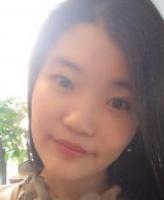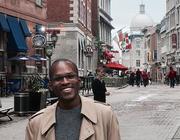Date:
Location:

Young Voters’ Understanding(s) of Political Participation: Diversity of Political Repertoires and Balance of Strategies Among Millennial College Students by Bo Yun Park, Department of Sociology, Harvard University
https://sociology.fas.harvard.edu/people/bo-yun-park
Abstract: How do young voters define and categorize political participation, and what accounts for the variations in their different conceptualizations? To date, the literature on youth political participation has assumed a certain level of homogeneity in talking about politically engaged Millennials: students are biographically available and they can be clustered based on socio-demographic characteristics. In fact, scholars have not systematically analyzed how the institutions they navigate can drastically alter their political socialization and failed to comprehensively understand the variations of political attitudes and behaviors both across and within institutions. Based on 105 in-depth interviews, cognitive maps, and survey responses collected from college students at a private and a public university located in New England, three months prior to the 2016 Presidential Election, my research shows that Millennial college students commonly define political participation around issues of awareness, discourse, and action. Yet, students at the prestigious private university have 1) a more diversified political repertoire, and 2) a stronger tendency to mobilize more conventional strategies within the institutional sphere, regardless of their socio-demographic backgrounds. The students at the public school, on the other hand, have 1) a more concentrated toolkit of political action, and 2) a stronger preference for unconventional tactics in the non-institutional arena. These diverging understandings of political participation result from a differing level of political efficacy between students at the private and the public universities, which is shaped by differential sense of acquired status and the daily practices students engage in through their extracurricular activities.

Status as Security: An Exploration of the Academic Lives of Elite Students by Jonathan D. Hampton, Harvard Graduate School of Education
https://scholar.harvard.edu/jonathanhampton
Abstract: How do students at elite universities think about the economic and educational returns of their college education? Drawing on 29 interviews from first-year students at an elite university, I find that students think that attending an elite university will allow them to secure a high degree of social status, which they believe is integral to obtaining future professional opportunities. These students see the high status that they acquire through their association to an elite university as a safety net that enables them to maximize the economic and educational returns from their college education which, in turn, solidifies internal and external perceptions of their elite identity.

Race and Merit: Racialized Exclusion from Prestige in Higher Education Enrollment, 2004-2013 by Prabhdeep Kehal, Department of Sociology, Brown University
https://www.brown.edu/academics/sociology/prabhdeep-kehal
Abstract: In a time when baccalaureate aspirations are ubiquitous and students from all racial and ethnic backgrounds are enrolling in college at higher rates (Grodsky 2007), the shifting definition of merit towards test scores challenges institutions that utilize selective admissions. While definitions of merit have changed over time, the tension between what individuals can control and what is ascribed onto them in a meritocratic system ignores a more systemic understanding of individual ascriptive traits. Using nationally representative data from Education Longitudinal Study of 2002 and High School Longitudinal Study of 2009, I explore how changes in enrollment by institutional selectivity in 2004 and 2013 are explained by objective meritocratic criteria. I find that, while Asian and Black students showed meritocratic growth in this period, Black students showed the greatest growth but saw the greatest decrease in enrollment at the more selective institutions. Furthermore, I find that there has been an immense increase in students not enrolling in postsecondary education or enrolling in two-year institutions between 2004 and 2013. The evidence in this paper suggests that claims of meritocracy are misguided and meritocratic criteria in admissions continue to perpetuate racially inequitable enrollment trend, while highlighting the importance of disaggregating postsecondary destination outcomes by institutional selectivity.
